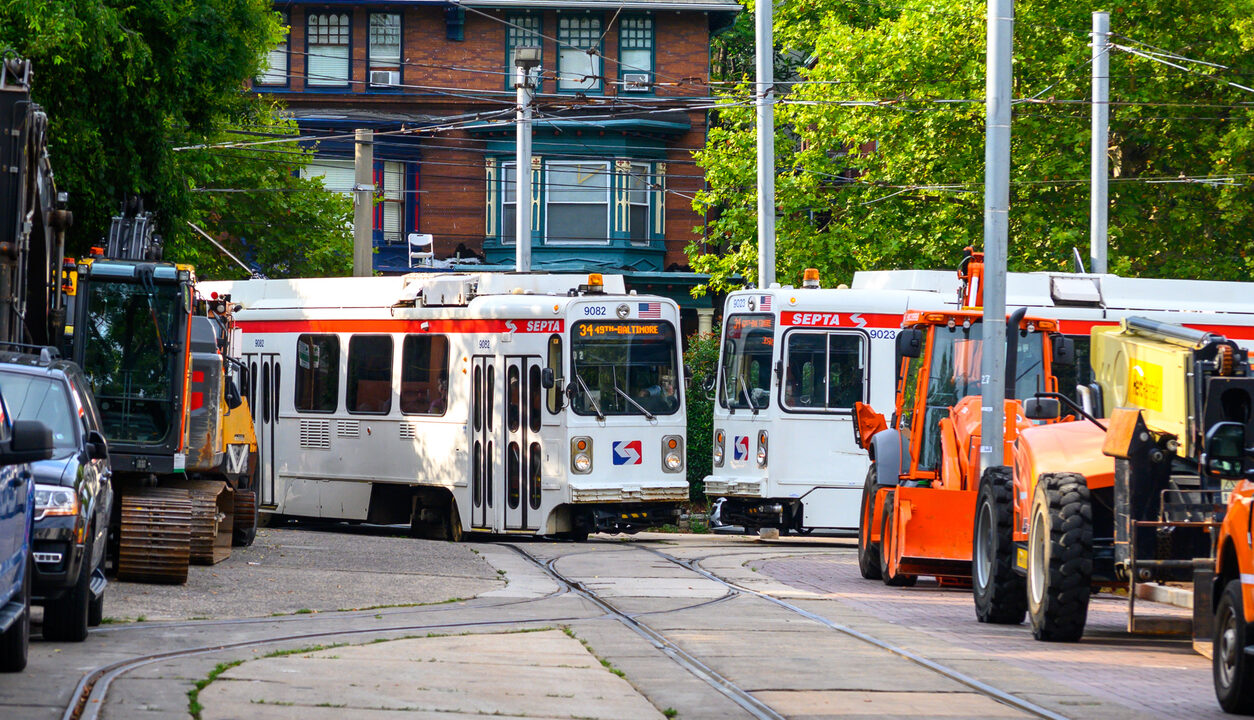Fact Sheet

Mass Transit Bailout
2025 Budget Proposal Seeks to Further Subsidize Inefficient Agencies
Summary
- Mass transit agencies, including Southeastern Pennsylvania Transportation Authority (SEPTA) in Philadelphia and Pittsburgh Regional Transit (PRT) in Pittsburgh, have seen steep declines in ridership since 2019.
- Gov. Josh Shapiro plans to direct an additional 1.75 percent of sales and use tax revenue, equivalent to $292.5 million, to bail out failing mass transit agencies like SEPTA and PRT.
- Rather than relying on state-funded bailouts, these agencies should cut costs, optimize services, and rely more on rider fares.
Mass Transit Woes
- As of March 2025, SEPTA’s systemwide ridership is 75 percent of pre-pandemic levels.
- Weekday bus ridership is at 80 percent of pre-pandemic levels, while weekday metro ridership is at 67 percent and regional rail ridership is at 72 percent.
- While certain SEPTA services currently meet or exceed pre-pandemic ridership and service levels, others, especially in regional rail, continue to lag:
- Lansdale/Doylestown Line weekday ridership is at 50 percent of pre-pandemic levels while offering 71 percent of pre-pandemic services.
- Warminster Line weekday ridership is 36 percent of pre-pandemic levels while offering 72 percent of pre-pandemic services.
- Wilmington/Newark Line weekday ridership is at 51 percent of pre-pandemic levels while offering 75 percent of pre-pandemic services.
- West Trenton Line weekday ridership is at 49 percent of pre-pandemic levels while offering 72 percent of pre-pandemic services.
- PRT also reports steep ridership decreases, with December 2024 weekday bus ridership at 55 percent of December 2019 levels and weekday rail ridership at 40 percent of December 2019 levels.
- SEPTA is plagued by safety and quality-of-life concerns. Despite notable progress since 2023, crime on SEPTA is still up compared to pre-pandemic levels:
- In 2024, there were 87 aggravated assaults and 134 robberies, compared to 46 aggravated assaults and 118 robberies in 2019.
- SEPTA’s operating budget has increased 13.6 percent since fiscal year 2019 despite steep drops in ridership during that time.
- The agency reports a $213 million budget shortfall and has threatened 20 percent fare increases and 45 percent service cuts to offset the shortfall.
SEPTA’s Bailout
- Shapiro’s budget proposal would redirect an additional 1.75 percent in state sales tax revenue to public transit agencies, with SEPTA receiving most of these funds.
- SEPTA already receives more than $700 million from state funds. In December 2024, the agency received a $153 million bailout from federal funds earmarked for rural highway projects. SEPTA also receives funds from driver charges, such as fees, fines, and tolls, from Pennsylvanians who do not use the transit system.
- In fiscal year 2024–25, mass transit agencies received more than $2.4 billion in state funding from sales and use tax collections, vehicle taxes, and motorist charges. Since fiscal year 2015–16, state funding to mass transit agencies increased 36 percent.
- Federal Transit Administration (FTA) data shows SEPTA is more reliant on state funding and less on fares and local funding than other mass transit agencies with more than $1 billion in operating expenses.
- Compared to other agencies, SEPTA receives the fourth largest share of its funding from state sources and the smallest share of funding from local sources and fares.
Solutions
- Proposed legislation would require SEPTA to enter a public-private partnership to operate bus lines. Similar efforts in Maryland and Denver were successful.
- A public-private partnership would provide significant cost savings to SEPTA and avoid proposed service cuts while reducing SEPTA’s reliance on state funding.
- Involving the private sector will help SEPTA find innovations and efficiencies that will improve the services SEPTA offers.
- Additionally, SEPTA and other transit agencies should focus on attracting more riders by offering safe, efficient, on-time, clean transportation services.
- State lawmakers should not force taxpayers and drivers to further subsidize SEPTA and other transit agencies. SEPTA serves many of the wealthiest communities in the state. Increasing state funding will only force drivers from rural counties to further subsidize rides for the wealthy.
- Only 35 percent of voters supported last year’s mass transit bailout. Opposition exceeds support from every demographic category, except Democrats, where only 49 percent support a bailout.
- Instead of blanket funding unrelated to services provided and actual ridership, Harrisburg should redirect state aid toward fare assistance for low-income individuals.
- Some low-income individuals depend on SEPTA for transportation. A transportation voucher would target aid to help these individuals offset increased fares.
- Relaxing zoning laws can also help SEPTA by encouraging denser neighborhoods and growing populations in urban centers conducive to supporting mass transit systems.